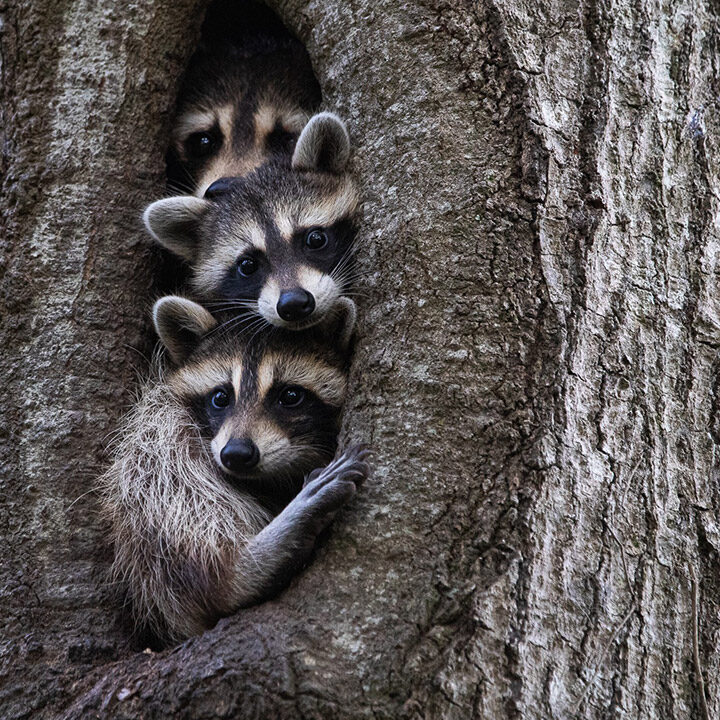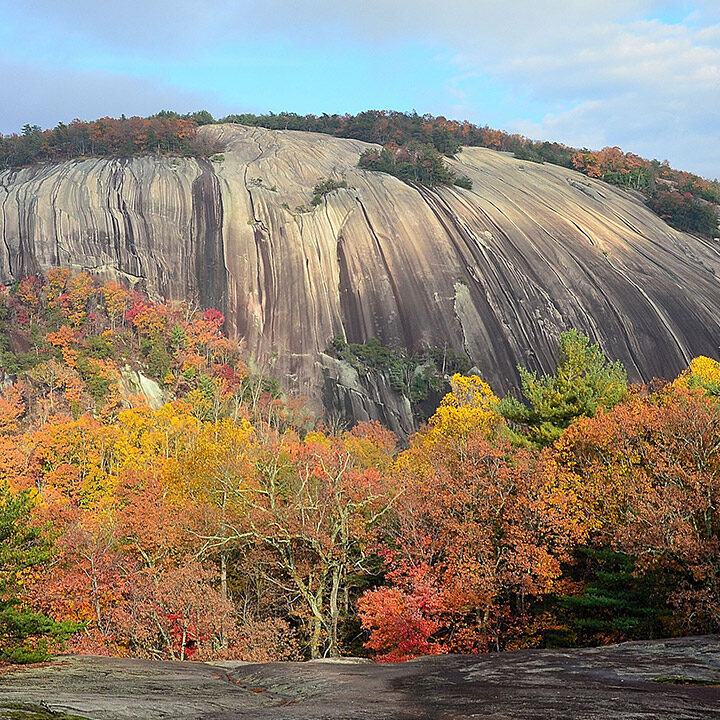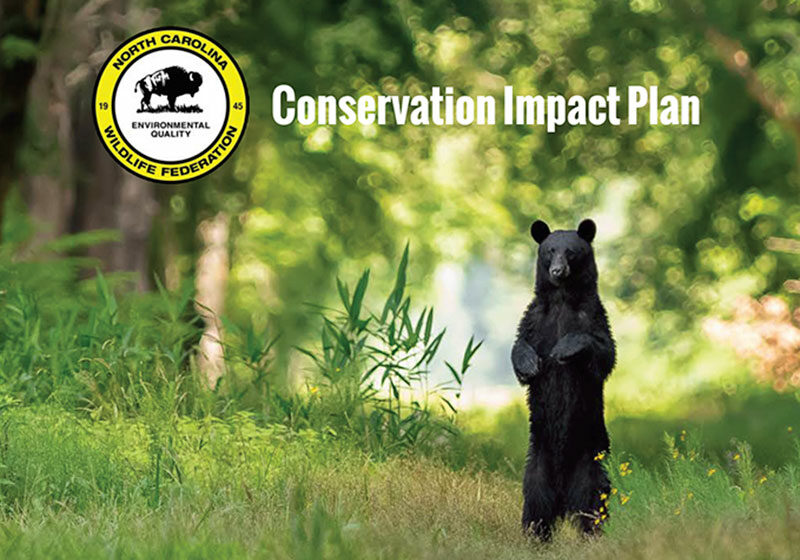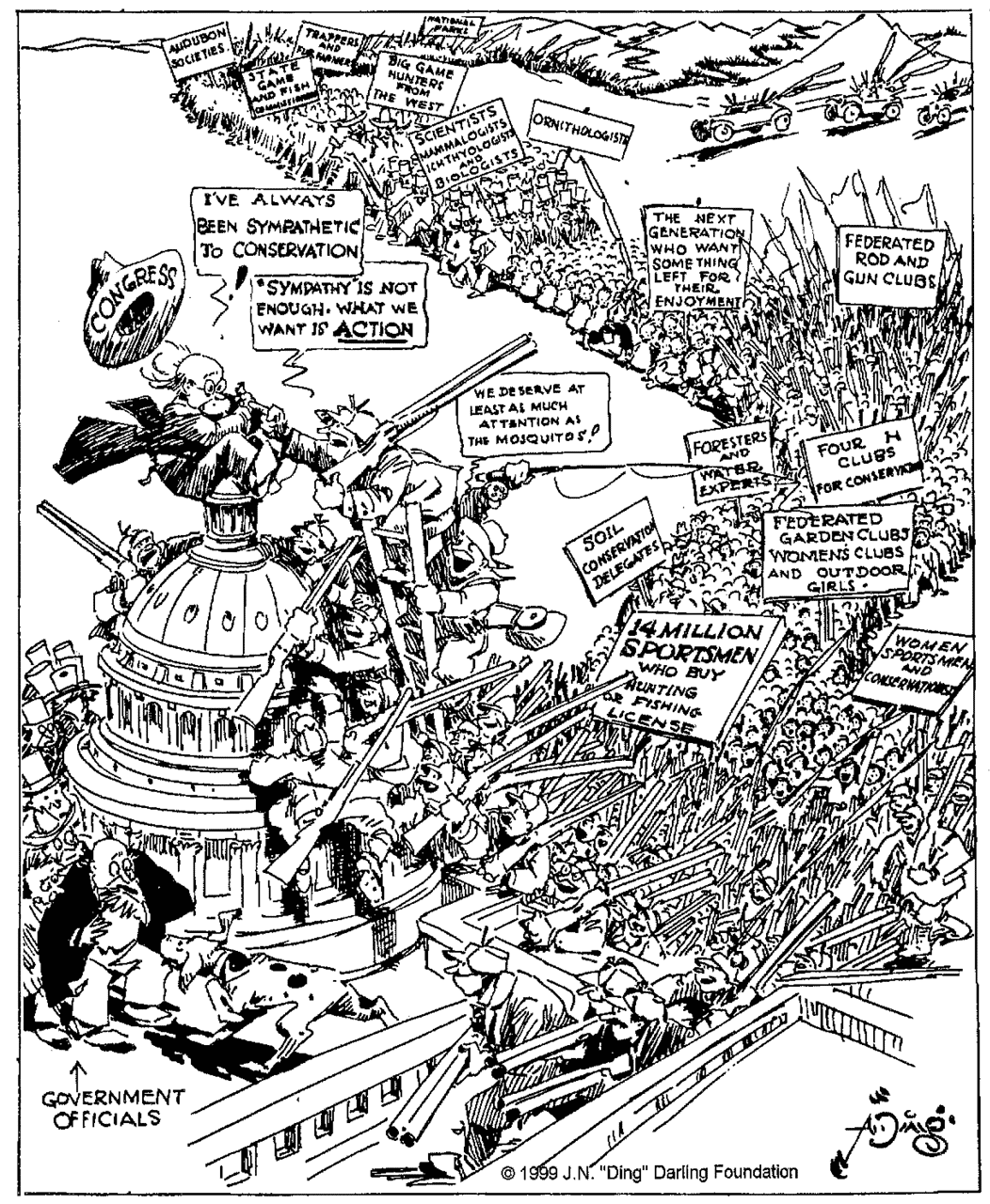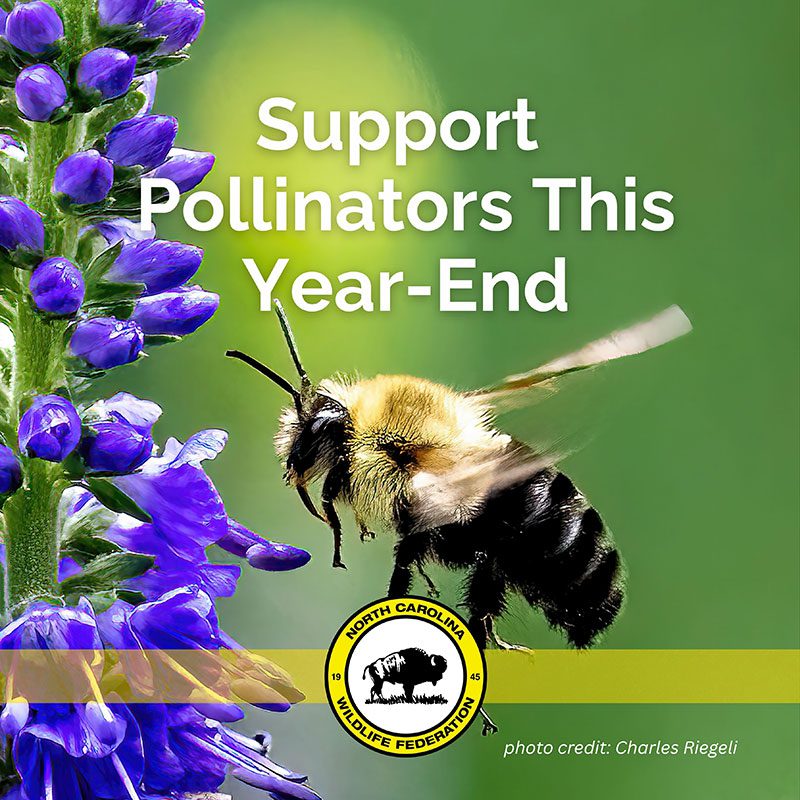Governor's Awards
NCWF honors individuals, associations, businesses who have exhibited an unwavering commitment to conservation.
Conservation Policy
NCWF must always be seated at the table, speaking and working for wildlife and habitat and those who enjoy them.
About NCWF
Since 1945, North Carolina Wildlife Federation has worked for all wildlife and habitat bringing together citizens, outdoor enthusiasts, hunters and anglers, government and industry to protect North Carolina’s natural resources. From the Great Smoky Mountains to the Outer Banks, our non-profit 501c3 organization is made up of people who value wildlife and wild places and the many ways to enjoy them.
Engaging the natural world is a cornerstone of NCWF history and philosophy. Supporting access to wild places and opportunities to enjoy them is a defining feature of our organization. We work collectively for the places and species that have no voice through our policy and protection work, research and education and direct hands-on conservation projects.
All our policy decisions and conservation projects are based on the best available science and fortified by a network representing a variety of wildlife and outdoor interests.
NCWF honors, respects, and embraces all people, regardless of age, gender, race, color, nationality, physical/intellectual/emotional abilities, political affiliation, religion, or spirituality. We ask our staff, partners, associate organizations, friends, and visitors to show consideration and respect for each other, in the true spirit of the Federation. NCWF is proud to be an equal opportunity employer.
Mission
To protect, conserve, and restore North Carolina wildlife and habitat for all.
Vision
A North Carolina with healthy and diverse habitats and wildlife valued by all people and sustained for future generations.
Values
Our strength is derived from values-driven leadership:
- Science-based decision making
- Non-partisan approach to policy
- Inclusive of broad interests and perspectives
- Collaborative with diverse organizations and individuals
- Committed to solutions and impact
Goals
- Wildlife Goal: Protect, conserve, and restore diverse sustainable fish and wildlife populations in North Carolina.
- Habitat Goal: Protect, conserve, restore, and connect habitat for fish and wildlife.
- People Goal: Mobilize people and communities to achieve local and statewide wildlife and habitat goals.
- Infrastructure Goal: Build and maintain an internal infrastructure that grows organizational capacity, impact, resiliency, and sustainability.
Strategies
- Policy and Advocacy - Strongly influence local, state, and federal policy that affects wildlife and habitat in North Carolina using science-based, established conservation models to guide our positions.
- Community-based - Restore habitat in North Carolina communities through cleanups and plantings in partnership with NCWF Wildlife Chapters and volunteers and organize community members to connect with nature through outdoor experiences.
- Education and Awareness - Enhance and expand opportunities for youth and adults that foster awareness and appreciation of wildlife in North Carolina and the importance of biodiversity for healthy habitat and humanity.
NCWF's Conservation Impact Plan
Threats to our environment — including invasive species, diseases, habitat loss, pollution, and a warming climate — are putting wildlife populations at great risk in North Carolina. Read about NCWF's Organizational Strategy and Focus Areas.
NCWF is a Platinum-level GuideStar participant, which demonstrates our commitment to transparency.
The History of NCWF
In 1944, NC State University wildlife management professor Ross O. Stevens published “Talk About Wildlife: For Hunters, Fishermen and Nature Lovers.” In it, he railed at the NC Department of Conservation and Development that was, at the time, the state agency for enforcing game laws, decrying “unscrupulous and selfish politicians” who had turned the Department into a repository of political favors.
Stevens outlined plans for a separate, science-based wildlife management agency. He laid the groundwork for a new way of thinking about the term “wildlife” to incorporate all animals. On February 6, 1945, he joined several dozen sportsmen-conservationists in Raleigh to plot a strategy for the creation of a separate state wildlife agency in which science alone would form the basis for natural resources management. The organization’s purpose was to promote and improve wildlife and fishing conditions in North Carolina.
On that day, the North Carolina Wildlife Federation was born, and Stevens became the first executive director a year later.
An all-encompassing organization
Today, we’re comprised of affiliates, chapters and members -- an all-encompassing and consensus-oriented federation for all wildlife and outdoor interests. NCWF pairs sporting issues with air, water and land protection for birders, nature observers and paddling enthusiasts alike.
This big tent approach, welcoming all and working for each species and their habitat, has proven to be an important niche and role. Our skill and experience building and leading collaborations amplify our impact and the impacts of others. Our efforts are aimed at fundamental changes in policies, processes, relationships, and power structures that would impair quality of life for all North Carolinians.
Historical highlights and wins for wildlife
- The General Assembly, upon the efforts of NCWF, authorizes the establishment of the North Carolina Wildlife Resources Commission in 1947.
- Developed a pioneering system of trout stream classification for NCWRC.
- Educated prosecutors on the importance of wildlife violations.
- Lead support for a volunteer state duck stamp and prints, with sales going toward wetlands acquisitions.
- Supported the Clean Detergent Act which was passed to eliminate phosphates that caused algal blooms in waterways and required hunters to wear blaze orange.
- Helped the North Carolina Wildlife Resources Commission broaden its horizons when laws were written, giving it authority over endangered and nongame species.
- Passed legislation mandating hunters to pass a hunter education certification class before being able to purchase a hunting license.
- Pushed recycling legislation to get adopted to curb refuse in the environment.
- Fought for tighter stream protection through sedimentation control laws.
- Led efforts to establish Alligator River and Roanoke River National Wildlife Refuges, South Mountains game lands and Jocassee Gorges State Park.
- Worked, funded and aided the research for restoration or reintroductions of iconic species including river otter, bald eagle, elk, turkey, whitetail deer, red wolf and osprey
- Sued to stop peat mining in sensitive coastal areas.
- Successfully opposed the Navy over the construction of a 30,000-acre practice landing field for jet planes adjacent to Pocosin Lakes National Wildlife Refuge, where hundreds of thousands of waterfowl and tundra swans and snow geese overwinter.


